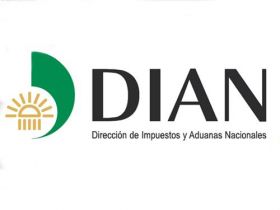Paying taxes in Colombia
 Taxation in Colombia:
Taxation in Colombia: If you’re considering a move to Colombia, here’s part of what you’ll need to know about taxation. First, a disclaimer. I’m not an expert, and there’s a ton of false information on line and elsewhere about Colombian taxes. To get the most recent, and most accurate info, consult a Colombian attorney who specializes in taxation law, and who is bilingual. Do not listen solely to expats who claim to know. Tax laws change, and on line information lingers forever.
A few things to note: The tax department in Colombia is the DIAN, Dirección de Impuestos y Aduanas Nacionales, (the IRS of Colombia). Filing is referred to as Declaración de renta. The tax season begins August 1st, not April 15th as it does in the U.S, and April 30th as in Canada.
For this piece, data is based on 2016 tax law info, and an exchange rate of 3,000.71 pesos to the US dollar. UVT, Unidad de Valor Tributario, refers to the prevailing daily wage in Colombia for tax purposes. UVT for 2016 was about $9.90 per day, or $297.00 per month.
First let’s dispose of a myth: we’d heard that there’s a five-year window before obtaining residency during which we would not be considered ‘tax residents’ of Colombia. This is false. If you reside in Colombia more than 183 days of a year total, and not necessarily continuous days, you’re considered a tax resident.
Again, I am NOT an expert, but here’s what I’ve read. Let’s address the question by who does not have to file a declaration of taxes. (My personal observation: it may be in your interest to file anyway, even if there’s no tax liability, just for documentation. When it comes time to apply for permanent residency, after five years of temporary Cedula status, tax filings are examined).

So who must file?
If ALL of the following are met, you will not have to file:
1) Your gross annual income is less than 1,400 X UVT, about $13,860.00 USD.
2) Gross equity (net worth) is less than 4,500 X UVT, about $44,550.00 USD.
3) Total value of consumption (purchases etc.) does not exceed 2,800 X UVT, about $27,720.00 USD.
4) Credit Card usage does not exceed 2,800 X UVT, about $27,720.00 USD.
Note: Colombia taxes worldwide income, and agreements exist between countries, the U.S. included, for sharing income data. We know expats here in Medellin who ignore tax filing requirements at their peril. We also know a few who’ve had the unpleasant task of paying back taxes. The penalties can be stiff for not filing, and they include demands for back payment, and limitations on eventual full time residency status until tax liability is cleared. Current penalty for not filing is 10 X UVT, or about $100.00 USD. That may seem trivial, but hold on. If you didn’t file, and you owe taxes, penalties can be 5% per month, up to 100%.
You can readily see that, apparently, any expat must file taxes in Colombia. If your gross annual income is below $13,800.00 you’re likely not able to move anyway, so there’s no tax issue. One caveat that’s a good news, bad news thing--each individual files separately in Colombia, so a husband/wife team, or other partnered relationship may double the above figures as household income to arrive at an answer. Again, check with the experts on this.
Here’s the good news. Colombia does allow for deductions, and the government does consider economic contributions of expats. A few of those deductions include expenses related to receiving your income like a home office etc., travel expenses for income, mortgage interest for your dwelling, payments toward your medical insurance in Colombia, support of dependents, contributions to ones savings account, and a certain percentage of your work income, if you’re still working while living in Colombia.
In addition, credits are available for taxes paid in the U.S. and other countries, on Social Security income, for example. We were told to keep every single receipt we obtained, and we have. My wife has crafted a spreadsheet for them, and we’re careful to mark every receipt for its date, and any taxes paid on the transaction. These may (or may not) be useful as deductibles.
The bottom line is that just because you’re an expat, or Social Security is your only income source, as a ‘tax resident’ of Colombia, you must file taxes here. Your liability may be zero, indeed several expats we’ve talked with have no liability for taxes after the dust settles, but they still must file. Again, only a Colombia tax law expert is able to advise you, and there are several available. I’m told that the average current charge for filing taxes is around $100.00 USD.
In closing, the tax-filing obligation seems onerous and intrusive, and we’d thought so, too. It even gave us pause when considering Colombia as a place to settle. But the other side of it is that the cost of living in Colombia is much less than many other places, especially the U.S., for example, and the quality of our lives here makes tax considerations a minor issue. Keep those tax returns, all purchase receipts and credit card statements, tote up all potential deductibles, hire a Colombian tax expert, and you’ll be fine.


